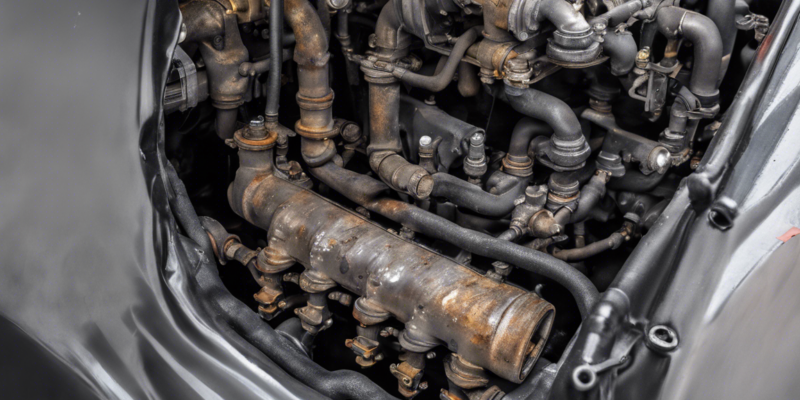An oil leak at home can be a messy and costly problem to deal with. Whether it’s from your car, lawnmower, or other equipment, preventing oil leaks is essential to maintain a clean and safe environment. In this article, we will discuss five effective ways to prevent an oil leak at home. From regular maintenance to proper storage, these tips will help you avoid potential leaks and save you time and money in the long run.
1. Regular Inspections and Maintenance
Regular inspections of your vehicles and equipment can help you identify potential issues before they turn into leaks. Check for oil stains on the ground, loose or damaged hoses, and corrosion on metal surfaces. Replace worn out gaskets and seals as needed, and ensure that all connections are tight to prevent leaks from occurring.
2. Proper Storage
Storing oil containers and equipment in a dry and cool place can help prevent deterioration of seals and hoses, which can lead to leaks. Avoid exposing oil to extreme temperatures and direct sunlight, as these conditions can weaken the material over time. Additionally, make sure that all containers are sealed properly to prevent leaks due to spills or accidental damage.
3. Use High-Quality Products
Investing in high-quality oil and lubricants can go a long way in preventing leaks. Cheap or low-quality products may cause damage to your equipment, leading to leaks and other issues. Choose products that are recommended by manufacturers for your specific vehicle or machinery, and always follow the recommended maintenance schedule for optimal performance.
4. Clean Up Spills Immediately
If you do experience a spill or leak, it is crucial to clean it up immediately to prevent contamination of the surrounding area. Use absorbent materials like kitty litter or oil absorbent pads to soak up the oil, and dispose of it properly according to local regulations. Ignoring spills can lead to environmental damage and pose a health risk to you and your family.
5. Educate Yourself
Understanding the signs of a potential oil leak can help you detect and address issues before they escalate. Look out for unusual smells, smoke, or leaks under your vehicles or equipment. Listening for strange noises or changes in performance can also indicate a problem that needs to be addressed promptly. By staying informed and vigilant, you can prevent costly repairs and damages caused by oil leaks.
Frequently Asked Questions (FAQs)
Q1: Can I use any type of oil for my equipment or vehicle?
A1: It is essential to use the correct type and grade of oil recommended by the manufacturer to ensure optimal performance and prevent leaks.
Q2: How often should I check for oil leaks?
A2: Regular inspections should be carried out at least once a month, or more frequently for older vehicles and equipment.
Q3: What should I do if I discover an oil leak?
A3: If you detect a leak, address it immediately, clean up the spill, and repair the source of the leak to prevent further issues.
Q4: Are oil leaks harmful to the environment?
A4: Yes, oil leaks can contaminate soil and water sources, posing a threat to wildlife and the environment.
Q5: How can I dispose of oil properly?
A5: Recycle used oil at a certified collection center or take it to a local hazardous waste facility for proper disposal.
By following these prevention tips and staying proactive in your maintenance efforts, you can minimize the risk of experiencing an oil leak at home. Taking the time to implement these strategies can save you time, money, and stress in the long term, while also protecting the environment from potential harm.

Comments